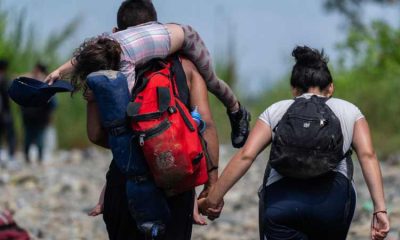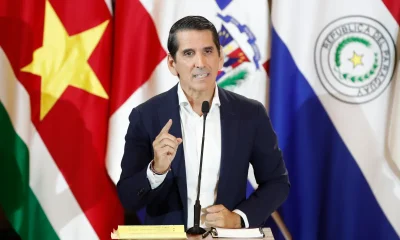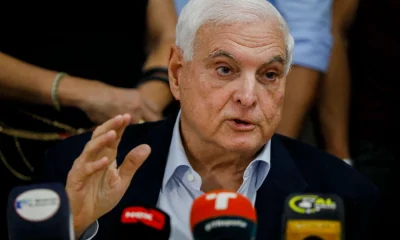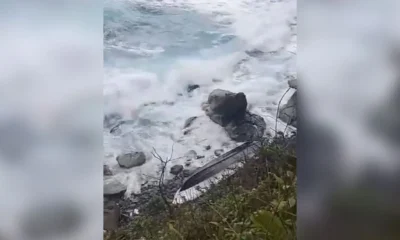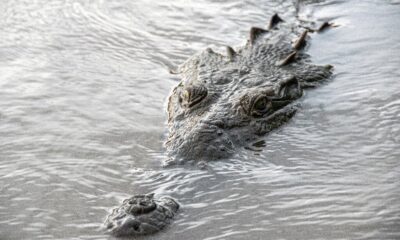Central America
Wildlife summit to vote on ‘historic’ shark protections
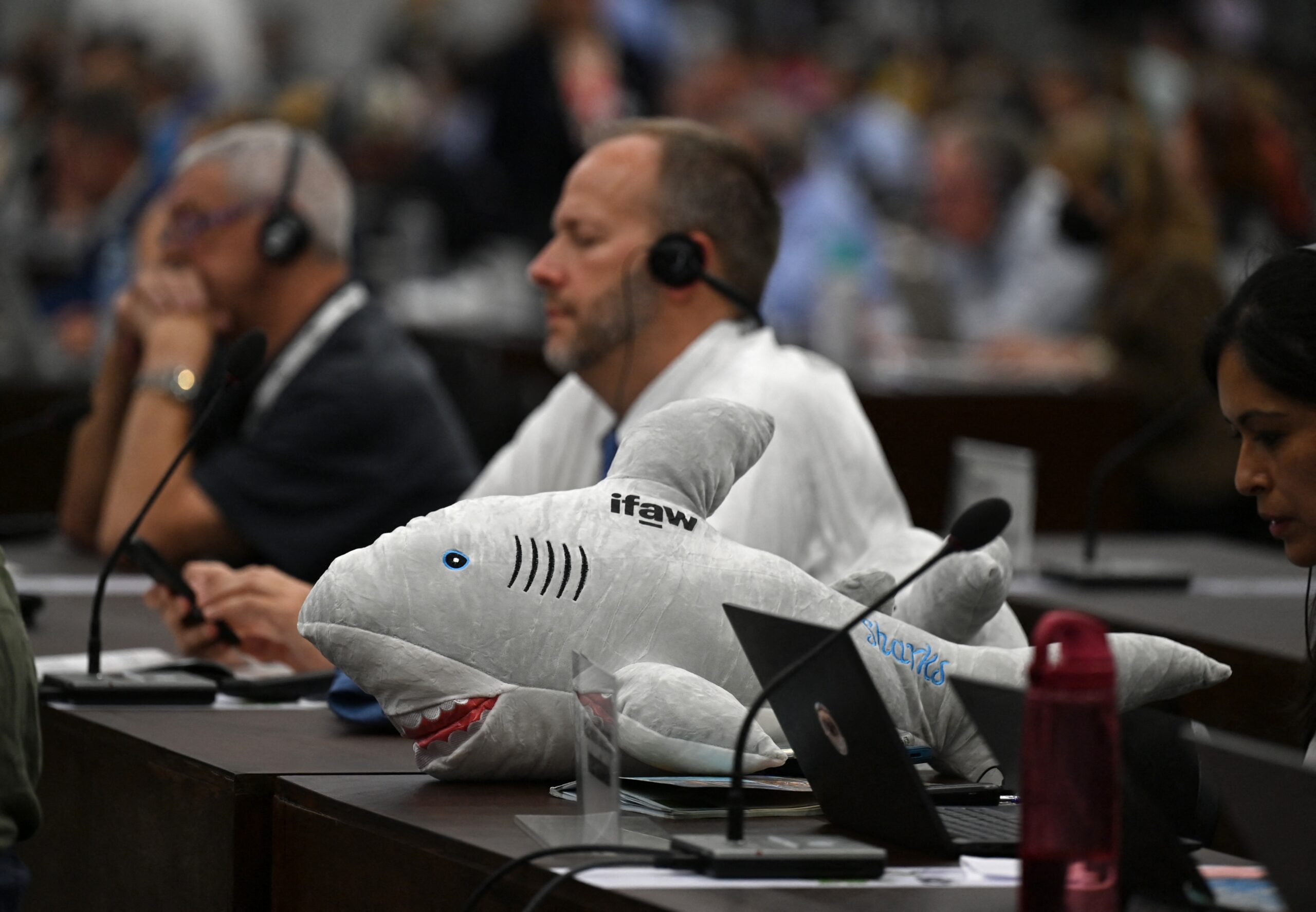
| By AFP | Francisco Jara |
A summit on the international trade in endangered species will decide today whether to ratify a “historic” proposal to protect sharks, a move that would drastically restrict the lucrative global shark fin trade.
The proposal would place dozens of species of the requiem shark and the hammerhead shark families on Appendix II of the Convention on International Trade in Endangered Species (CITES).
That appendix lists species that may not yet be threatened with extinction but may become so unless their trade is closely controlled.
The initiative was one of the most discussed at this year’s CITES summit in Panama, with the proposal co-sponsored by the European Union and 15 countries. The meeting began on November 14, and ends on Friday.
If Thursday’s plenary meeting gives the green light, “it would be a historic decision, since for the first time CITES would be handling a very large number of shark species, which would be approximately 90 percent of the market,” Panamanian delegate Shirley Binder told AFP.
Shark fins — which represent a market of about $500 million per year — can sell for about $1,000 a kilogram in East Asia for use in shark fin soup, a delicacy.
The vote follows a hectic debate that lasted nearly three hours, with Japan and Peru seeking to reduce the number of shark species that would be protected.
“We hope that all of this will (now) be adopted in plenary,” said Binder.
The plenary will also vote on ratifying a proposal to protect guitarfish, a species of ray.
Heated debate
Several delegations, including hosts Panama, displayed stuffed toy sharks on their tables during the earlier Committee I debate.
After the heated debate, the request to protect requiem sharks went to a vote, garnering above the needed threshold and calming the waters for the subsequent hammerhead shark debate.
Delegates and directors of conservation organizations, who are observers at the summit, are confident that both proposals will be ratified.
“We hope that nothing extraordinary happens and that these entire families of sharks are ratified for inclusion in Annex II,” Chilean delegate Ricardo Saez told AFP.
‘Extinction crisis’
The world is currently in the middle of a major shark extinction crisis, Luke Warwick, director of shark protection for the NGO Wildlife Conservation Society (WCS), told AFP at the beginning of the summit.
During the committee debate, Japan had proposed that the trade restriction be reduced to 19 species of requiem sharks and Peru called for the blue shark to be removed from the list. However, both suggestions were rejected.
Participants at the summit considered 52 proposals to change species protection levels. CITES, which came into force in 1975, has set international trade rules for more than 36 000 wild species. Its signatories include 183 countries and the European Union.
Central America
Guatemala President Says Starlink Terminal Found Inside Prison

Guatemalan President Bernardo Arévalo revealed on Tuesday that a Starlink terminal was discovered inside a prison in the country, highlighting corruption and the illegal introduction of advanced communication technology into the penitentiary system.
Arévalo did not specify which prison the device was found in but stressed that Starlink’s ability to connect directly to low-orbit satellites makes it particularly difficult to disrupt, posing a serious security risk.
The disclosure was made during a press conference attended by Interior Minister Marco Antonio Villeda and Defense Minister Henry Sáenz.
On January 6, specialized units of Guatemala’s National Civil Police (PNC), members of the Army and prison security personnel carried out Operation Sentinel at the Renovación 1 Maximum Security Prison for Men, located in Escuintla. According to the Interior Ministry, the operation aimed to reduce criminal activity, prevent illicit acts and stop the trafficking of prohibited items inside the prison.
During the operation, authorities also dismantled businesses operating near several prisons after detecting routers that were allegedly used to redirect internet signals into penitentiary facilities, according to local outlet Emisoras Unidas.
Tensions escalated further over the weekend of January 17 and 18, when inmates affiliated with gangs staged riots in three prisons. During the unrest, they took prison guards and a psychologist hostage, demanding extra-large beds, air conditioning, transfers to other facilities and access to the internet.
Central America
Guatemala Police Arrest Prison Guard Caught in the Act of Extortion
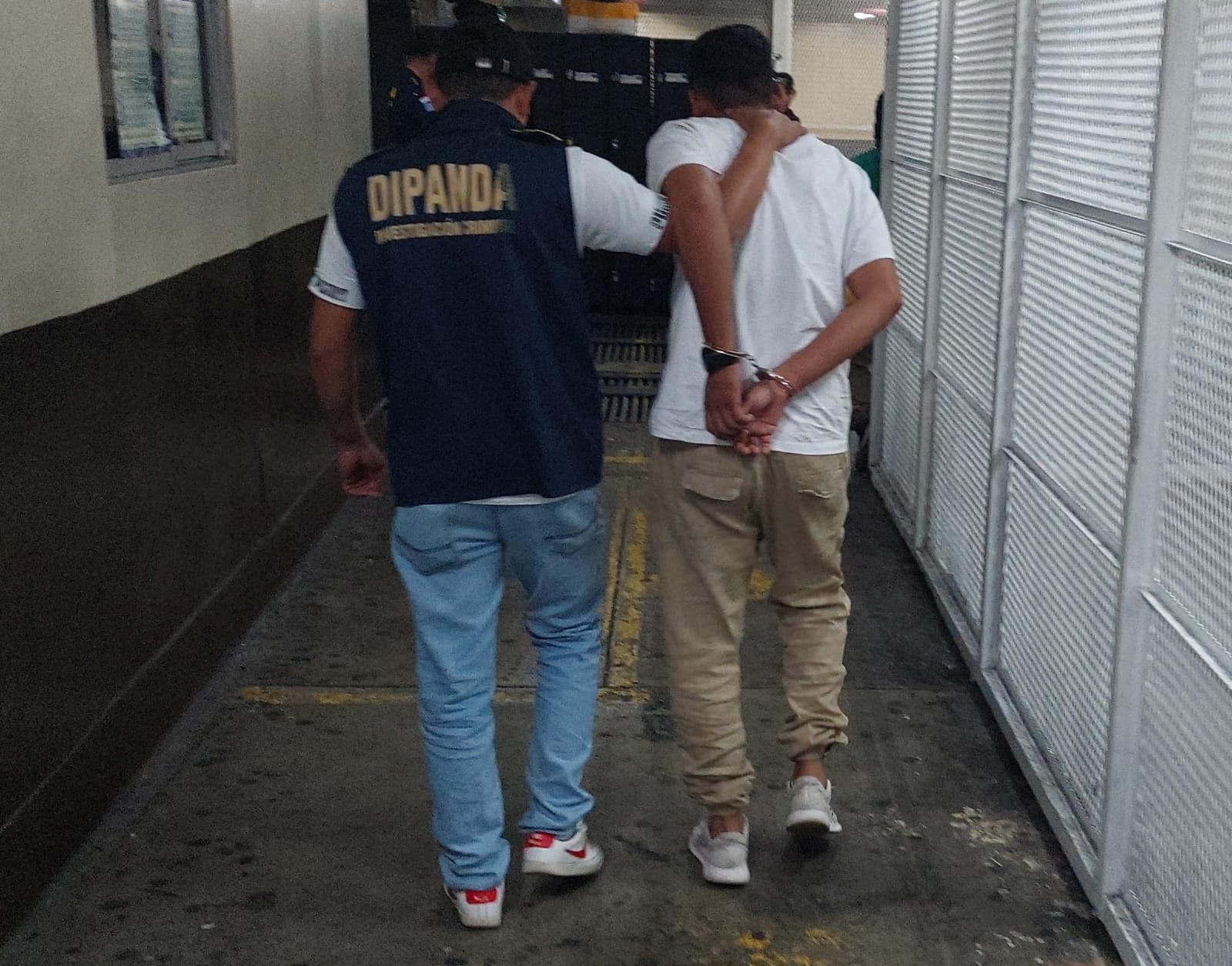
Guatemala’s National Civil Police (PNC) arrested a suspected extortionist in the act during an operation carried out in the department of Quiché, authorities reported.
According to the police report, the arrest took place in Zone 1 of Santa Cruz del Quiché after officers responded to a citizen complaint. Agents from Precinct 71 identified the suspect as Encarnación “N”, 41, who was serving as a guard in the Guatemalan Penitentiary System.
The suspect was caught while attempting to collect a package simulating an extortion payment totaling 25,000 quetzales. Police intervened at the precise moment the money was being handed over, allowing authorities to document the crime in flagrante delicto.
Following the operation, the detainee was placed at the disposal of the competent courts to face criminal proceedings.
The PNC emphasized that such operations aim to dismantle criminal structures involved in extortion, regardless of whether those implicated are linked to state institutions, and urged the public to continue reporting these crimes through confidential channels.
Central America
Honduras swears in conservative president Asfura after disputed election

Conservative politician Nasry Asfura assumed the presidency of Honduras on Tuesday with an agenda closely aligned with the United States, a shift that could strain the country’s relationship with China as he seeks to confront the economic and security challenges facing the poorest and most violent nation in Central America.
Asfura’s rise to power, backed by U.S. President Donald Trump, marks the end of four years of left-wing rule and secures Trump another regional ally amid the advance of conservative governments in Chile, Bolivia, Peru, and Argentina.
The 67-year-old former mayor and construction businessman was sworn in during an austere ceremony at the National Congress, following a tightly contested election marred by opposition allegations of fraud and Trump’s threat to cut U.S. aid if his preferred candidate did not prevail.
Grateful for Washington’s support, Asfura—who is of Palestinian descent—traveled to the United States to meet with Secretary of State Marco Rubio, before visiting Israeli Prime Minister Benjamin Netanyahu.
“We need to strengthen relations with our most important trading partner,” Asfura said after being declared the winner of the November 30 election by a narrow margin, following a tense vote count that lasted just over three weeks.
-

 Central America4 days ago
Central America4 days agoGuatemala seizes over a ton of cocaine hidden in flour at Pacific port
-

 International5 days ago
International5 days agoDelcy Rodríguez seeks political agreements after Maduro’s ouster
-

 International4 days ago
International4 days agoHistoric snowstorm paralyzes Toronto after 60 centimeters of snow
-

 Central America3 days ago
Central America3 days agoGuatemala Police Arrest Prison Guard Caught in the Act of Extortion
-

 Central America3 days ago
Central America3 days agoBukele leads public trust rankings as UCA survey highlights gains in security
-

 Central America3 days ago
Central America3 days agoHonduras swears in conservative president Asfura after disputed election
-

 International4 days ago
International4 days agoSpain’s irregular migrant population rises to 840,000, study finds
-

 International5 days ago
International5 days agoFederal immigration agents kill man in Minneapolis, sparking protests and outrage
-

 International1 day ago
International1 day agoFootball Fan Killed in Clashes After Colombian League Match
-

 International3 days ago
International3 days agoWinter Storm Fern Leaves 30 Dead and Over One Million Without Power Across the U.S.
-

 Central America1 day ago
Central America1 day agoGuatemala President Says Starlink Terminal Found Inside Prison
-

 Sin categoría3 days ago
Sin categoría3 days agoEight Killed in Series of Armed Attacks in Ecuador’s Manabí Province
-

 International3 days ago
International3 days agoDoomsday clock moves to 85 seconds before midnight amid rising global risks
-

 International4 days ago
International4 days agoRights group says nearly 6,000 killed in Iran protest crackdown
-

 International1 day ago
International1 day agoMissing Spanish Sailor Rescued After 11 Days Adrift in Mediterranean
-

 International1 day ago
International1 day agoRubio Says U.S. Could Participate in Follow-Up Russia-Ukraine Talks
-

 International3 days ago
International3 days agoSpain approves plan to regularize up to 500,000 migrants in Historic Shift
-

 Sin categoría3 days ago
Sin categoría3 days agoEl Salvador Launches Fourth Year of Ocean Mission to Protect Marine Ecosystems
-

 International4 days ago
International4 days agoVenezuela frees at least 80 political prisoners, NGO says
-

 International4 days ago
International4 days agoEU launches new probe into X over AI-generated fake nude images
-

 International12 hours ago
International12 hours agoU.S. Senate Rejects Budget, Bringing Government Closer to Shutdown Amid DHS Dispute
-

 International4 days ago
International4 days agoSevere winter storm grips U.S., leaves multiple dead as extreme cold persists
-

 International4 days ago
International4 days agoFrance debates ban on social media for children under 15
-

 International12 hours ago
International12 hours agoStorm Kristin Kills Five in Portugal, Leaves Nearly 500,000 Without Power
-

 International12 hours ago
International12 hours agoTrump Says Putin Agreed to One-Week Halt in Attacks on Ukraine Amid Extreme Cold
-

 International12 hours ago
International12 hours agoMan Arrested After Vehicle Crashes Into Jewish Institution in Brooklyn































